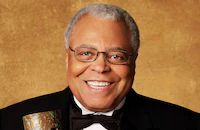Casper: A Spirited Beginning
Brief Synopsis
Cast & Crew
Sean Mcnamara
Michael Mckean
Bill Farmer
Pauly Shore
Jeremy Foley
Brian Doyle-murray
Film Details
Technical Specs
Synopsis
When a lost and confused Casper fails to show up for mandatory new ghost training, Kibosh, the monstrous head of Ghost Central Station, sends his sniveling assistant into the world of "fleshies" to find Casper and bring him back.
Director
Sean Mcnamara
Cast

Michael Mckean
Bill Farmer
Pauly Shore
Jeremy Foley
Brian Doyle-murray
Lori Loughlin

Steve Guttenberg
Rodney Dangerfield
Richard Moll
James Ward
Jeff Harnell
Brendon Ryan Barrett
Ben Stein

James Earl Jones
Sherman Hemsley
Crew
Kristin M. Burke
Kent Butterworth
Mike Elliott
Jymn Magon
Raymond Mcintyre Jr.
Jeffrey A Montgomery
Joseph Oriolo
Lance H Robbins
Haim Saban
Christian Sebaldt
Christian Sebaldt
Christopher M Taylor
Mike Upton
Jay Vetter
John Waltz
Film Details
Technical Specs
Articles
Rodney Dangerfield, (1921-2004)
He was born Jacob Cohen in Babylon, Long Island, New York on November 22, 1921. His father was a vaudevillian performer who played professionally as Phil Roy. Known as something of a cut-up in high school, he started performing comedy when he was 20, and spent the next 10 years working alongthe Atlantic coast under the name Jack Roy.
His career was temporarily sidelined with family responsiblities - he married Joyce Indig in 1949 and she soon gave birth to two children: Brian and Melanie. With a family to support, he sold aluminum siding and lived in New Jersey, yet still held onto his dream of being a stand-up comic. In 1961, he divorced his wife (by all accounts his marriage had been an unhappy one), and he hit the road again as Rodney Dangerfield. By the mid-60s, Rondey was hitting his stride, following a some successful nightclub appearances in Manhattan and Atlantic City. At this point, he had developed his stage persona as a harassed schmo, always tugging at his tie and padding down his sweated brow. His persistancy paid off when he made his first television appearances in 1967: The Ed Sullivan Show and The Merv Griffin Show both raised his profile, but what really made Rodney was his July 29, 1969 debut on The Tonight Show with Johnny Carson. With his flurry of one-liners, goggle eyes and, of course, "I don't get no respect!" plea, audiences loved him and Rodney would make over 70 appearances over the next 30 years on The Tonight Show for both Johnny and eventual host, Jay Leno.
Around this time, Rodney garnered his first film role, as an irritable theater manager in The Projectionist (1971), but he would have to wait almost 10 years later before he struck box-office gold. The film was Caddyshack (1980), and as Al Czervik, the loudly dressed, obnoxious but lovable millionaire who crashes a snotty Golf Club, Rodney may not have displayed great acting skills, but his comic personality was vibrant and engaging, and with the comedy being one of the biggest hits of the year, he was now a star.
His follow-up to Caddyshack, Easy Money (1983), followed the same formula (he played a baby photgrapher who inherits money), but the tone was much nastier, and the crirtics panned it. He rebounded though with the biggest hit of his career, Back to School (1986). The plot was simple, a self-made millionaire goes back to college to prove his son his worth only to fall in love in the process, grossed over $100 million. Indeed, it looked like Rodney Dangerfield had all the respect in the world.
His career kept taking surprise turns in the '90s: he was an in-demand "guest voice" on such animated projects like Rover Dangerfield, The Simpsons, and Dr. Katz, Professional Therapist. Yet, the biggest surprise by far was his dramatic turn as an abusive, alcoholic father in Oliver Stone's Natural Born Killers (1994). For his performance, he received glowing reviews, but ill-health was becoming an issue for him, and Rodney had to curtail his schedule considerably after this.
He returned to the screen as the Devil in the Adam Sandler comedy Little Nicky (2000), but on his 80th birthday (November 22, 2001), he suffered a mild heart attack, and in the Spring of 2003, he underwent brain surgery to improve his blood flow in preparation for an upcoming heart-valve replacement surgery. This year started off brightly for him: he made another film appearance, Angles with Angles; released his autobiography in May entitled It Ain't Easy Being Me and in just the past two months appeared on television for Jimmy Kimmel Live, and in an episode of the CBS sitcom Still Standing playing a wisecracking, next-door neighbor. Sadly, this flurry of reactivity was not to last. On August 24, he entered UCLA Medical Center for heart valve-replacement surgery, but complications from an infection after the operation led to a coma, and he reamined in vegetative state for the last six weeks of his life. He is survived by his wife of 11 years, Joan Child; his son, Brian; and daughter, Melanie.
by Michael T. Toole

Rodney Dangerfield, (1921-2004)
Quotes
Trivia
Miscellaneous Notes
Released in United States on Video September 9, 1997
Released in United States Winter January 1, 1997
Began shooting early January 1997.
Completed shooting mid February 1997.
Released in United States Winter January 1, 1997
Released in United States on Video September 9, 1997













